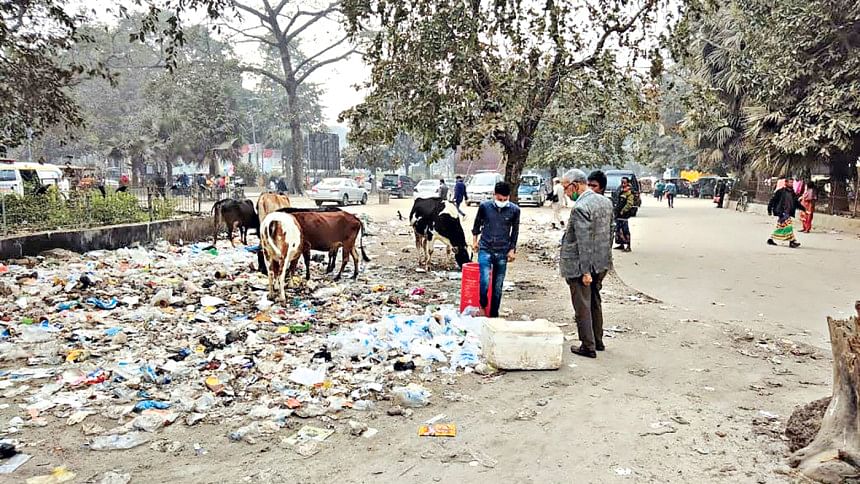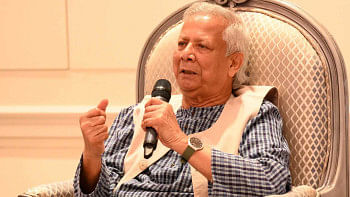Rangpur Medical College Hospital: Medical waste piles up amid disposal woes

Rangpur Medical College Hospital has long been struggling with ensuring safe and effective disposal of medical waste, raising concerns over public health and the environment.
For the past five years, it has relied on a private organisation for medical waste disposal. However, the service has been largely inadequate.
The absence of a proper waste management system has resulted in the accumulation of hazardous waste within the hospital premises, posing health risks to visitors and patients alike.
Adding to the crisis, the construction of a medical waste management plant at the hospital, intended to mitigate pollution and ensure safe disposal, has been halted due to strong opposition from locals.
According to the Health Engineering Department in Rangpur Division, the Tk 3.43 crore project was awarded to Jhenaidah-based contractor firm Gungun Enterprise through a tender process on May 8, 2024, with a one-year deadline for completion.
The proposed 5,500-square-foot plant was designed to include an office room, an autoclave and effluent treatment plant, a storage room, and a container washroom.
Saquib Ahmed, site engineer of the contractor firm, said workers cleared waste from the construction site and excavated the land for the building's foundation.
Necessary materials, including rods and cement, were also stocked. However, due to resistance from locals, they were forced to halt the project, he added.
On September 15 last year, locals formally complained to the hospital director, arguing that the plant's location near the Bangladesh Medical Association building and adjacent residential areas posed health risks.
Additionally, they pointed out that the Department of Environment has yet to issue a location clearance certificate for the project.
Despite these concerns, healthcare experts stressed the urgent need for a proper waste management plant for RMCH.
Mohammad Istak Mahfuz, co-ordinator (Northern Zone) of Prism Bangladesh Foundation, which has been collecting medical waste from the hospital since 2020, said the hospital generates nearly 1.5 tonnes of waste daily, including 300 kilogrammes of hazardous waste.
"Due to poor waste segregation, much of the hazardous waste gets mixed with general waste, leading to improper disposal," he said.
Health experts warned that without a sustainable waste disposal system, the accumulation and poor disposal of hazardous medical waste will increase the risk of infections, disease outbreaks, groundwater contamination, and environmental degradation.
Contacted, Brigadier General Ashiqur Rahman, director of the hospital, said locals not only submitted a written complaint but also staged protests, threatening legal action if the plant's construction continued.
Dr ABM Mosiur Rahman, project director of the waste management plant, however, said the protesters were misguided.
"Similar waste management plants are being constructed at hospitals across the country. Some people have falsely linked these facilities to pollution risks, leading to unnecessary delays," he said.

 For all latest news, follow The Daily Star's Google News channel.
For all latest news, follow The Daily Star's Google News channel. 



Comments